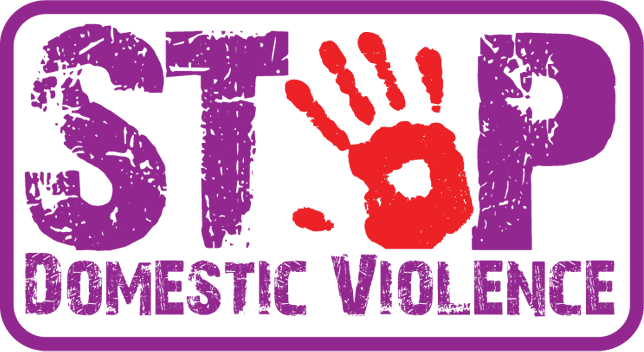
Case Study
It’s 1:00 a.m. and your boyfriend just got a home, drunk. You ask him where he has been and why he didn’t answer your calls. He yells at you to mind your business. You ask him again, and he tries to push you away (maybe) but it feels more like hit you with a frying pan. You fall to the floor. Hard. You scream. Your neighbors, concerned call the police. The police appear at your house at 1:10 a.m. You are crying in the corner and your boyfriend is still screaming and throwing things.
The police enter house, since the door was open, and see you crying and a bruise on your head. They can tell your boyfriend is under the influence of drugs or alcohol and they separate the two of you. The officer asks if you want to press charges and want a protective order. They also ask if you want to speak to a Domestic Violence Response Team. They tell you that even if you don’t press charges, they will. Just based on their observations, they have enough to file a complaint against your boyfriend. You tell them you just want him out of the house. He gets arrested.
You are now a victim of Domestic Violence. But what is that?
Domestic violence (or domestic abuse) can happen in a variety of ways, but there are two main components in New Jersey:
- As the victim you must have a qualifying relationship with the abuser; and
- The abuser must have committed a qualifying crime.
Irrespective of how it happens, domestic violence always causes emotional harm and sometimes physical harm.
What is a Qualifying Relationship under NJ’s Domestic Violence Act (N.J.S. 2C:25-17)?
- As the victim, you typically must be 18 years or older or an emancipated minor; AND
- The Qualifying Crime must have been by a spouse, former spouse, or a present/former household family member; OR
- Regardless of your age, the Qualifying Crime was by someone you are dating or who you have a child with.
Keep in mind that if the abuser is an unemancipated minor (under 18 and dependent on parents/guardian) he or she will be prosecuted as a juvenile delinquent, not domestic violence laws. Also it is important to understand that a minor is emancipated from his or her parents if he or she is married; in the military; has a child or is pregnant; or has declared emancipated by the court or an administrative agency.
What is a Qualifying Crime under the NJ’s Domestic Violence Act (N.J.S. 2C:25-17)?
Domestic violence means doing one or more of the following to someone protected under the Act:
- Homicide (N.J.S. 2C:11-1),
- Terroristic Threats (N.J.S. 2C:12-3),
- Criminal Restraint (N.J.S. 2C:13-2),
- Sexual Assault (N.J.S. 2C:14-2),
- Criminal Sexual Contact (N.J.S. 2C:14-3),
- Burglary (N.J.S. 2C:18-2),
- Harassment (N.J.S. 2C:33-4),
- Assault (N.J.S. 2C:12-1),
- Kidnapping (N.J.S. 2C:13-1),
- False Imprisonment (N.J.S. 2C:13-3),
- Lewdness (N.J.S. 2C:14-4),
- Criminal Mischief (N.J.S. 2C:17-3),
- Criminal Trespass (N.J.S. 2C:18-3), and
- Stalking (N.J.S. 2C:12-10).
So what happens after he is arrested?
There are now two difference types of cases. The first will be heard in the Family Part of the Superior Court of New Jersey. This is where a Judge will determine if your Temporary Restraining Order (assuming you got one) becomes a Final Restraining Order.
- Temporary Restraining Order (TRO) the Superior Court Judge (Chancery Division, Family Part) usually grants this during the day or the local Municipal Court Judge grants it on nights and weekends. This request is heard without requiring the abuser present. The judge grants TRO if there is evidence of domestic violence AND an order of protection is necessary to prevent harm to you.
- Final Restraining Order (FRO) Within 10 days after the TGO was issued your will have a date to appear before a Family Law Judge in the Superior Court. In New Jersey, the FRO is indefinite until it is dismissed by a court. But not all states will keep an FRO forever, some require you to come to court and request you to continue the case.
What is the effect of a Temporary Restraining Order or Final Restraining Order?
A TRO/FRO can prohibit the abuser from:
- Returning to the location of the scene;
- Going near the location where you work or live;
- Contacting you;
- Having someone else contacting you;
- Possessing any weapons.
The TRO/FRO can also require the abuser to attend psychiatric treatment or seek other help and pay a fine to you.
If you don’t have legal status and you get an FRO against your partner, you may qualify for U-Visa or be able to file immediately for your green card through VAWA. You see an FRO is objective proof that you were a victim of abuse.
The second case concerns the criminal charges.
In the story, your boyfriend will be prosecuted for the assault (and other qualifying criminal charges) either in your local Municipal Court or if more severe in the Criminal Part of the Superior Court. Your boyfriend will likely face a conviction if you assist the prosecutor. Let’s say you refused to press charges and don’t show up to court to help the prosecutor convict your boyfriend. The police can interview your boyfriend and take his statement. If he admits to hitting you, the prosecutor may not need your assistance to convict your boyfriend. They can do it just with his own words.
Like receiving an FRO, if the court convicts your boyfriend, this is objective proof that you were the victim of abuse. Even if he takes an alternative disposition, depending on what he said on record this may also be sufficient to assist you achieving a U-Visa or green card through VAWA.
If you involve our domestic violence lawyer in the case from its inception, he will use the FRO trial or the allouction in the criminal case to lay the foundation for a subsequent U-Visa or VAWA application for my client.
Contact Our Domestic Violence Lawyer
If you are involved in a Domestic Violence incident and have questions, call 888-6956-6169 to discuss your case with a NJ Domestic Violence Lawyer.



